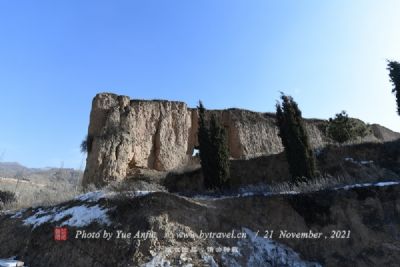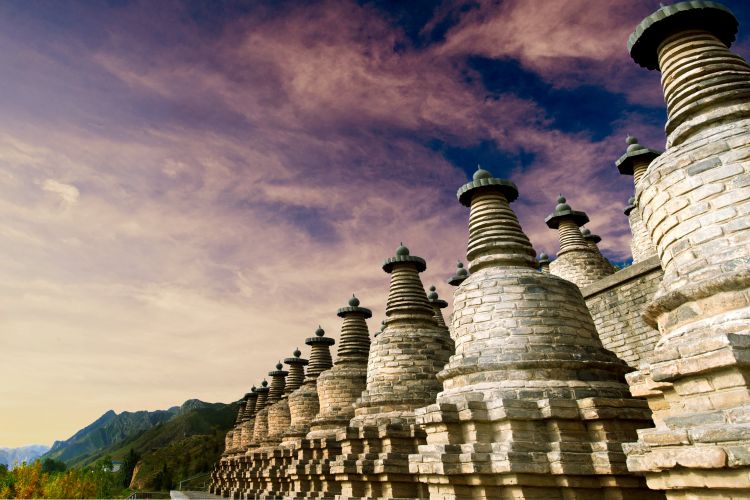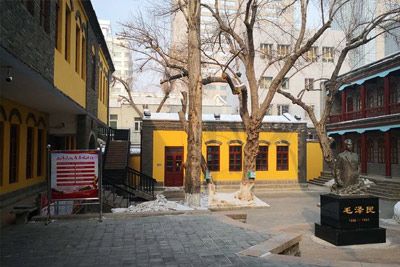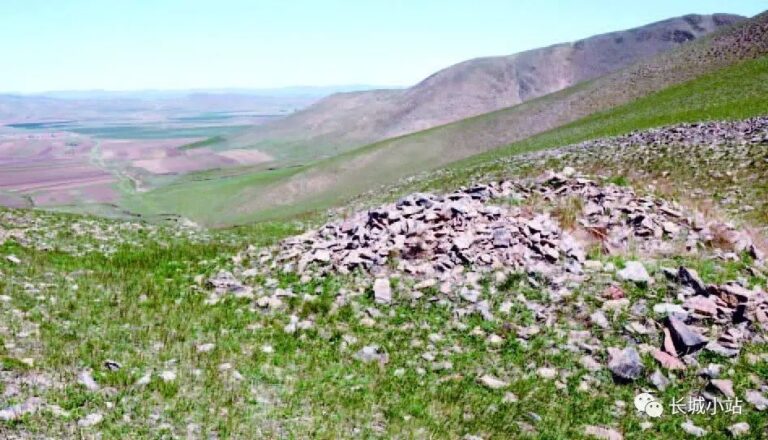Your Ultimate Guide to Zhoukou Dachengshuyuan: History, Culture, and Natural Beauty
An Essential Guide to Visiting Zhoukou Dachengshuyuan
In This Guide
- An Essential Guide to Visiting Zhoukou Dachengshuyuan
- The Rich History of Zhoukou Dachengshuyuan
- Main Highlights: What to See at Zhoukou Dachengshuyuan
- Planning Your Visit: A Practical Guide
- Tickets, Hours, and Booking
- How to Get There
- Local Cuisine and Accommodation
- Frequently Asked Questions
- Final Thoughts on Your Trip
Nestled in the serene town of Fugou, Henan Province, the Zhoukou Dachengshuyuan (大程书院) stands as a magnificent testament to China’s rich educational heritage and architectural elegance. Established during the Northern Song Dynasty between 1068 and 1077 by the renowned philosopher and educator Cheng Hao, this ancient academy has long been a beacon of learning and moral cultivation in the region.
As you approach the entrance, you’re greeted by the sight of well-preserved traditional architecture, where the intricate wooden structures whisper stories of scholars and thinkers who once roamed its halls. The academy, originally named Wenzheng Academy, was not merely an educational institution; it was a cultural hub that attracted bright minds from across the nation, nurturing talents who would go on to contribute significantly to Chinese philosophy and literature.
Today, Dachengshuyuan serves as both a historical landmark and a cultural sanctuary, inviting visitors to step back in time and immerse themselves in the tranquil atmosphere that once fostered great minds. With its lush gardens, ancient trees, and carefully curated exhibits, the academy offers a unique glimpse into the past, making it a must-visit destination for history enthusiasts and curious travelers alike.
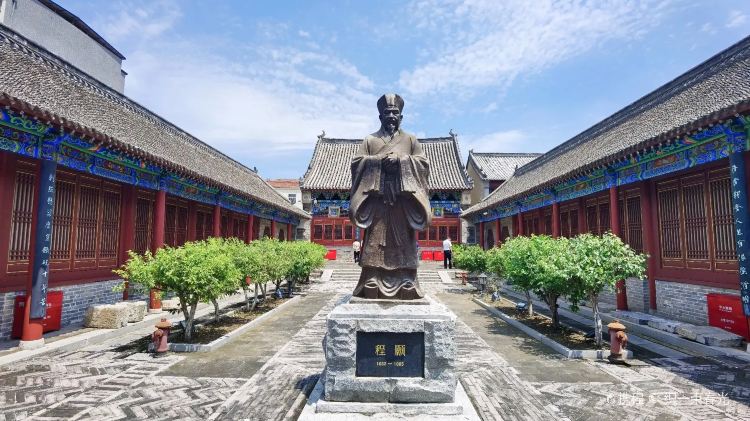
Zhoukou Dachengshuyuan.
Whether you’re exploring the intricacies of Confucian thought or simply enjoying a peaceful stroll through the grounds, Zhoukou Dachengshuyuan promises an enriching experience that captures the essence of China’s educational legacy. Prepare to be inspired by the stories of scholarly dedication and the beauty of this historic site, where the spirit of learning continues to thrive.
The Rich History of Zhoukou Dachengshuyuan
Nestled in the historical context of China’s educational evolution, Zhoukou Dachengshuyuan (大程书院) stands as a testament to the intellectual pursuits of the Song Dynasty. Founded during the Northern Song period, specifically in the years between 1068 and 1077, this academy was established by the esteemed philosopher and educator Cheng Hao (程颢) while he served as the magistrate of Fugou County. Cheng Hao, alongside his brother Cheng Yi, is widely recognized as a pivotal figure in the development of Neo-Confucianism, a philosophical movement that sought to harmonize Confucian teachings with Buddhist and Daoist principles.
Cheng Hao’s tenure in Fugou was marked by a deep commitment to education and moral cultivation. During a time when the region faced significant hardships due to frequent floods and droughts, he took proactive measures to alleviate the plight of the local populace. He initiated irrigation projects, built schools, and established the academy itself, which became a center for learning and a beacon of hope for the community. His dedication to education is encapsulated in the inscription he penned for the academy’s entrance, which simply read “Shuyuan” (书院), meaning “Academy.”
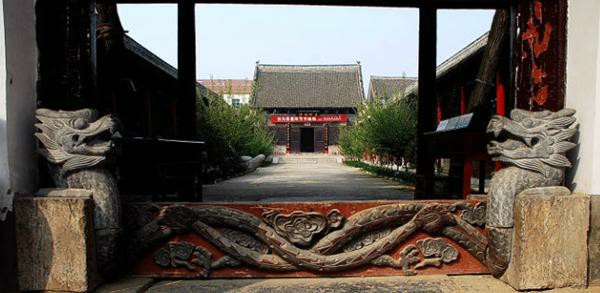
Zhoukou Dachengshuyuan.
The significance of Dachengshuyuan extended beyond local education; it attracted scholars from across the nation, creating a vibrant cultural hub. Notable figures, often referred to as the “Four Great Disciples of Cheng,” emerged from this institution, including prominent scholars such as Yang Shi and You Zuo, who would go on to influence the further development of Neo-Confucian thought. The academy became a melting pot of ideas and intellectual discourse, fostering a generation of thinkers that would leave a lasting impact on Chinese philosophy and education.
Over the centuries, Dachengshuyuan underwent numerous renovations and expansions, reflecting the changing dynastic styles and the enduring legacy of its founders. The current structures within the academy, mostly dating back to the Qing Dynasty, showcase traditional Chinese architecture with intricate wooden carvings, stone steps, and elegantly designed halls, including the notable Li Xue Hall (立雪讲堂). This hall commemorates the story of Yang Shi and You Zuo, who, braving heavy snow, stood outside in respect, waiting to seek knowledge from Cheng Yi, leading to the phrase “Standing in the Snow at Cheng’s Door” (程门立雪) becoming a symbol of dedication to learning.
Today, Zhoukou Dachengshuyuan is recognized not only for its historical significance but also as a cultural heritage site, preserving the rich educational traditions of ancient China. It continues to serve as a venue for various cultural events and educational activities, welcoming visitors who wish to delve into the profound history of Chinese philosophy and education. As one of the best-preserved academies in northern China, it remains a vital link to the past, inviting all to explore the legacies of thought that have shaped Chinese civilization.
Main Highlights: What to See at Zhoukou Dachengshuyuan
Zhoukou Dachengshuyuan (大程书院) is a remarkable cultural site that offers a captivating glimpse into China’s educational heritage. Nestled in the heart of Fugou County, this ancient academy dates back to the Northern Song Dynasty, specifically founded between 1068 and 1077 by the esteemed philosopher and educator Cheng Hao. Here are the key highlights that make this site a must-visit:
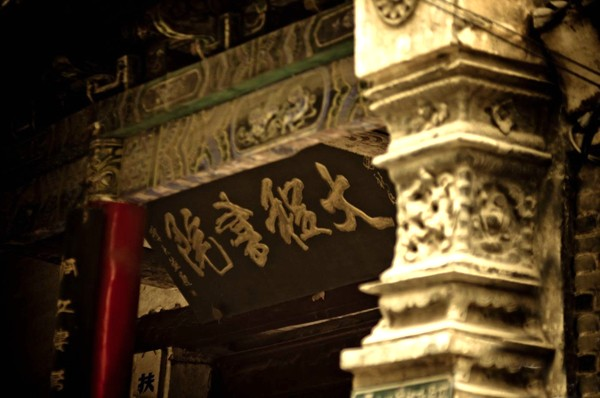
Zhoukou Dachengshuyuan.
-
Historical Significance: Dachengshuyuan is not just a relic; it represents a pivotal chapter in Chinese education and philosophy. Established by Cheng Hao, who was an influential proponent of Neo-Confucianism, the academy became a hub for scholars and students from all over the country. This historical context enriches your visit, as you walk through the very grounds where significant intellectual discourse took place.
-
Architectural Beauty: The academy features a stunning architectural layout that combines traditional Chinese design with serene natural surroundings. The main structure spans approximately 2,939 square meters, showcasing intricately carved wooden beams, ancient trees, and traditional stone pathways that transport visitors back in time. The grandeur of the “Lixue Lecture Hall” within the academy is particularly striking, adorned with calligraphy by notable artists.
-
Cultural Activities: Dachengshuyuan isn’t merely a museum; it serves as an active cultural center. Throughout the year, the academy hosts various exhibitions, lectures, and workshops focused on traditional Chinese arts such as calligraphy, painting, and philosophy. Participating in these activities can provide deeper insights into the rich cultural tapestry of the region.
-
Scenic Surroundings: The academy is set against a backdrop of lush greenery, making it a peaceful retreat for visitors. The tranquil environment encourages contemplation and reflection, perfect for those seeking a moment of respite from the hustle and bustle of modern life.
-
Local Influence: The legacy of Dachengshuyuan extends beyond its walls. It played a crucial role in shaping the educational landscape of the region, influencing local governance and community values centered around scholarship and moral development. The adjacent streets and neighborhoods bear the academy’s name, highlighting its enduring impact on Fugou’s cultural identity.
-
Accessibility: Conveniently located in Fugou County, the academy is easily accessible for travelers exploring the region. Open daily from 9:00 AM to 6:00 PM, with last entry at 5:00 PM, it offers a welcoming atmosphere for both casual visitors and those with a keen interest in history and culture.
Visiting Zhoukou Dachengshuyuan is an opportunity to immerse oneself in the scholarly traditions of ancient China while enjoying the serene beauty of its environment. Whether you’re a history buff, a lover of architecture, or simply in search of a quiet place to reflect, this academy promises an enriching experience that resonates long after you leave.
Planning Your Visit: A Practical Guide
Zhoukou Dachengshuyuan, a historical gem nestled in the heart of Fugou County in Henan Province, offers visitors a rich tapestry of culture, architecture, and education. This ancient academy, founded during the Northern Song Dynasty, serves as a testament to the scholarly traditions that have persisted in China for centuries. Here’s everything you need to know for a visit.
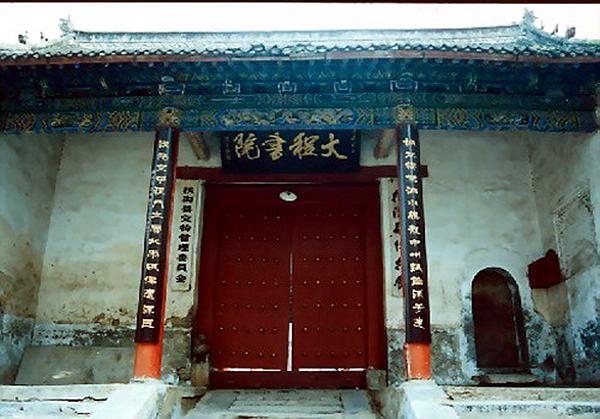
Zhoukou Dachengshuyuan.
Location and Access
Dachengshuyuan is conveniently situated at the intersection of Shuyuan Street and Xiaoshizikou Street, approximately 90 meters to the northwest of this crossing. The site is easily accessible by public transportation or taxi, making it a straightforward addition to your itinerary while exploring Zhoukou.
Opening Hours
The academy is open to visitors daily from 9:00 AM to 6:00 PM, with the last entry at 5:00 PM. It’s advisable to plan your visit accordingly to fully appreciate the site without feeling rushed.
Admission Fees
Entry to Dachengshuyuan is free, allowing everyone to explore and learn without the barrier of an admission fee. This makes it an excellent destination for both casual visitors and those with a keen interest in Chinese history and culture.
What to Expect
As you step into Dachengshuyuan, you’ll be transported back to the Northern Song era. The academy was founded by the influential philosopher Cheng Hao, who played a pivotal role in promoting Confucian principles and education.
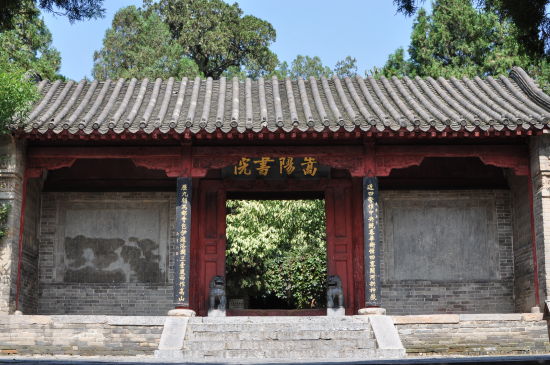
Zhoukou Dachengshuyuan.
- Architectural Highlights: The academy features traditional Chinese architectural elements, including ancient trees, an impressive gate, and well-preserved lecture halls. The layout is both spacious and serene, inviting contemplative exploration.
- Cultural Significance: The site is not just an architectural wonder; it also serves as a cultural hub. It regularly hosts exhibitions, lectures, and workshops that delve into ancient Chinese scholarship, philosophy, and arts. Participating in these events can greatly enhance your understanding of the academy’s historical context.
Tips for Visiting
- Plan Your Visit: Take time to research the history of Dachengshuyuan before your visit. Familiarity with its significance will enrich your experience.
- Dress Comfortably: The site features old pathways and steps, so wear comfortable footwear to navigate the area easily.
- Respect the Environment: Be mindful of your surroundings. As a historic site, it’s essential to maintain the integrity of the academy by not damaging any artifacts or structures.
- Photography: Feel free to take photos, but be considerate of other visitors. Avoid using flash in sensitive areas and respect any no-photography signs.
- Engage with Activities: If available, join cultural activities such as calligraphy classes or traditional lectures to gain deeper insights into the heritage of the academy.
Nearby Attractions
After visiting Dachengshuyuan, consider exploring other significant sites in Fugou County:
– Jihongchang Memorial Hall: A tribute to a national hero, this museum showcases rich historical artifacts.
– Wuyanshan Scenic Area: Ideal for nature lovers, this area offers picturesque landscapes and hiking opportunities.
– Fugou Ancient City: Wander through the remnants of this ancient town to experience local history and architecture.
Conclusion
Dachengshuyuan is more than just a historical site; it’s a window into the scholarly traditions that shaped Chinese culture. With its free admission, rich history, and tranquil atmosphere, it stands as a must-visit destination for anyone interested in exploring the depths of China’s educational legacy. Enjoy your journey through time at this remarkable academy!
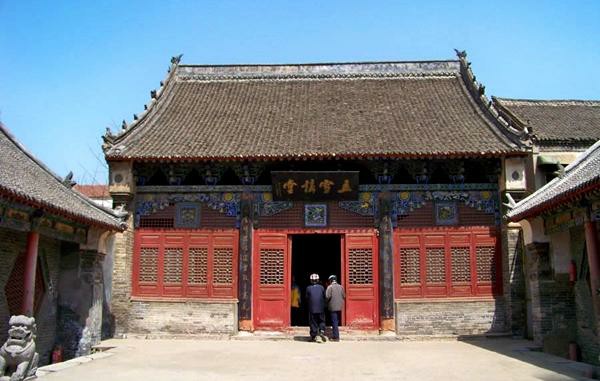
Zhoukou Dachengshuyuan.
Tickets, Hours, and Booking
When planning your visit to Zhoukou Dachengshuyuan (大程书院), it’s essential to be informed about the ticketing details to ensure a smooth experience.
Entry to the Dacheng Academy is free, allowing visitors to explore the rich history and architectural beauty without the concern of ticket costs. However, it’s advisable to check for any special exhibitions or events that might require a separate admission fee.
The academy is open to the public daily from 9:00 AM to 6:00 PM, with the last entry at 5:00 PM. This ample timeframe allows visitors to immerse themselves in the serene environment and appreciate the historical significance of this ancient educational institution.
For those looking to fully enjoy the experience, consider allocating at least an hour for your visit. This will give you enough time to wander through the various halls, admire the intricate architecture, and reflect on the profound cultural heritage that the academy represents.
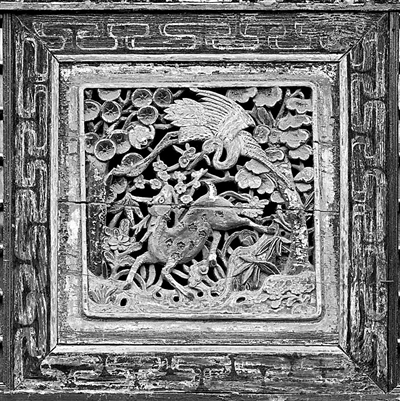
Zhoukou Dachengshuyuan.
While there are no formal reservations required for regular visits, it’s always a good idea to stay updated on any changes in operating hours or special events that could enhance your visit. Enjoy your journey into the heart of Confucian scholarship at Zhoukou Dachengshuyuan!
How to Get There
When planning your visit to Zhoukou Dachengshuyuan (大程书院), it’s essential to consider your transportation options for a smooth and enjoyable journey. Located in the bustling city of Fugou County within Zhoukou, Henan Province, the site is accessible via various modes of transport.
Getting There
By Air:
The closest major airport is Zhengzhou Xinzheng International Airport (CGO), approximately 150 kilometers (about 93 miles) from Zhoukou. From the airport, you can rent a car, take a taxi, or use ride-hailing services to reach your destination. Alternatively, you can book a flight to the smaller Zhoukou Airport, though flights may be limited.
By Train:
Zhoukou has a well-connected railway network, with high-speed trains (G-trains) serving major cities in China, including Beijing, Shanghai, and Wuhan. If you’re coming from Zhengzhou, the journey to Zhoukou takes roughly 1.5 to 2 hours. Once you arrive at the Zhoukou Railway Station, you can take a taxi or local bus to reach Dachengshuyuan.
By Bus:
Long-distance buses run frequently to Zhoukou from various cities throughout Henan Province and neighboring regions. The main bus station in Zhoukou is conveniently located, and from there, you can catch a local bus or taxi to Dachengshuyuan. This option is often cost-effective and can give you a glimpse of local life along your journey.
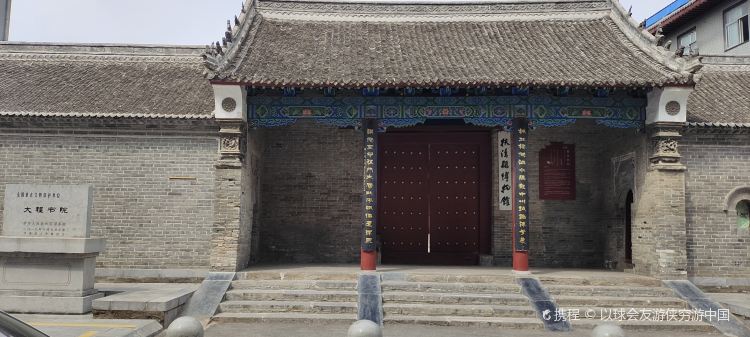
Zhoukou Dachengshuyuan.
By Car:
If you prefer the flexibility of driving, renting a car is a great option. The road network in Henan is well-maintained, making it easy to navigate. From Zhengzhou, take the G4 Beijing-Hong Kong-Macau Expressway, then transfer to the G107 National Road, following signs to Fugou County. There are parking facilities available near the site.
Local Transportation
Once in Zhoukou, local transportation options include:
-
Taxis: Readily available and affordable, taxis are a convenient way to travel to Dachengshuyuan from your accommodation or other attractions in the area.
-
Public Buses: The local bus system is extensive, with several routes connecting different parts of Zhoukou, including stops near Dachengshuyuan. It’s an economical choice, though you might need to check the schedule as service frequency varies.
-
Bicycles and E-scooters: For the more adventurous, renting a bicycle or an e-scooter can be a fun way to explore the city and its surroundings at your own pace.
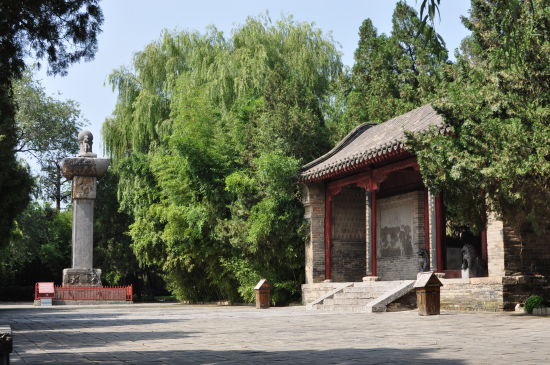
Zhoukou Dachengshuyuan.
Tips for Travelers
-
Plan Your Route: Before heading out, ensure you have a good understanding of your route. Utilizing navigation apps can be helpful, especially when driving or taking public transport.
-
Travel During Off-Peak Hours: If possible, travel during off-peak hours to avoid heavy traffic and overcrowded buses or trains, particularly during weekends and holidays.
-
Language Barrier: While Chinese is the primary language, some taxi drivers and locals may understand basic English. Having your destination written in Chinese can be beneficial.
With careful planning and consideration of these transportation options, your visit to Zhoukou Dachengshuyuan promises to be both convenient and enjoyable.
Local Cuisine and Accommodation
When visiting Zhoukou Dachengshuyuan (大程书院) in Henan Province, you’ll find a delightful blend of culinary experiences and accommodation options that enhance your cultural journey. The area is rich in traditional flavors and offers various choices to suit every traveler’s budget and taste.
Culinary Delights
Local Specialties:
1. Hu La Tang (胡辣汤): A must-try for breakfast, this spicy and tangy soup is made with a variety of ingredients, including tofu, vegetables, and sometimes meat. It’s known for its warming properties and is a popular way to start the day.
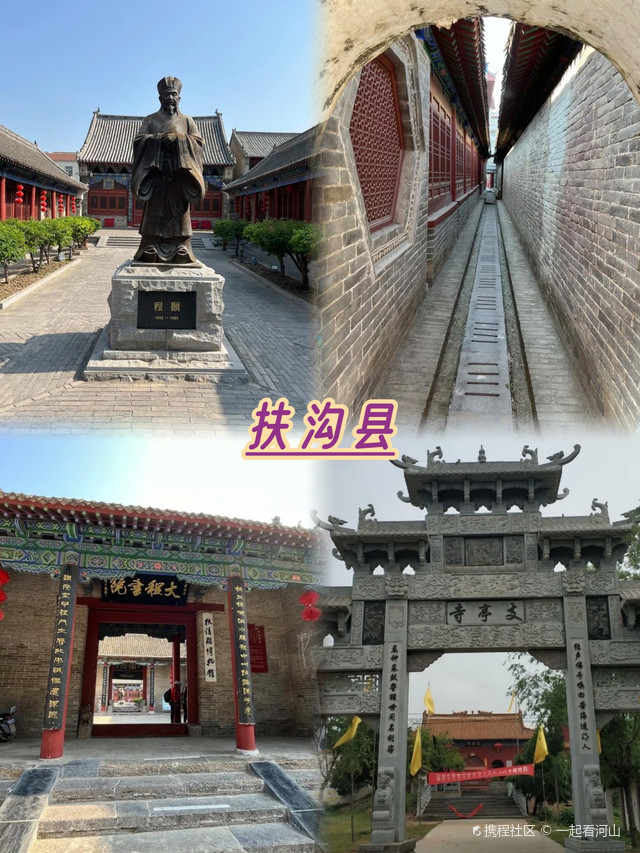
Zhoukou Dachengshuyuan.
-
Lamb Noodle Soup (羊肉烩面): This dish features tender lamb meat served in a flavorful broth with hand-pulled noodles. The combination of savory spices and fresh ingredients makes it an unforgettable meal.
-
Donkey Meat Sandwich (驴肉火烧): A unique local delicacy, this sandwich is filled with tender, spiced donkey meat, offering a taste that is both rich and savory. It’s often enjoyed with a side of pickled vegetables.
-
Braised Fish (闷糟鱼): Known for its succulent texture and aromatic flavor, this dish features fish stewed in a savory broth infused with local spices and served with rice or noodles.
Recommended Restaurants:
– Jianye Diner (建业大食堂): Located about 21.7 km from the academy, this establishment is highly rated for its quick service and delicious local cuisine, averaging around ¥43 per person.
-
De Ke Shi (德克士, Xihua Branch): For a more casual dining experience, try this fast-food chain that offers a selection of fried chicken and sandwiches, perfect for a quick bite.
-
Wang’s Big Plate Chicken (王记大盘鸡): This popular spot serves generous portions of spicy chicken served with potatoes and noodles, making it ideal for those looking to share a hearty meal with friends.
Accommodation Options
For a comfortable stay near Zhoukou Dachengshuyuan, consider the following accommodations:
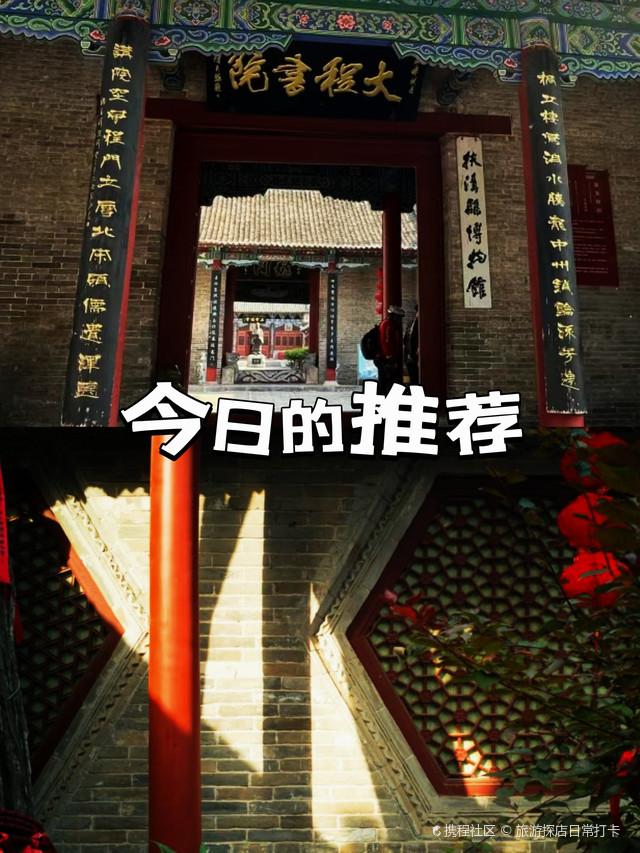
Zhoukou Dachengshuyuan.
-
Fugou Resource Hotel (扶沟资源宾馆): A well-rated hotel with modern amenities and friendly service, this hotel provides a convenient base for exploring the area. It is known for its clean rooms and hospitable staff.
-
Jianye Holiday Hotel (建业假日酒店): This star-rated hotel offers excellent facilities, including spacious rooms, a restaurant, and business services, catering to both leisure and business travelers.
-
Local Guesthouses: For a more authentic experience, consider staying in one of the many guesthouses or homestays in the area. These accommodations often provide a glimpse into local life and can offer home-cooked meals.
Tips for Your Stay
- Advance Booking: It’s advisable to book your accommodation in advance, especially during peak travel seasons.
- Local Transportation: Familiarize yourself with local transport options to easily navigate between the academy and your chosen dining or accommodation spots.
- Respect Local Customs: When dining and interacting with locals, be mindful of cultural norms, particularly in more traditional settings.
With these food and accommodation recommendations, your visit to Zhoukou Dachengshuyuan will be a memorable experience filled with local flavors and comfortable stays. Enjoy your journey through this historical and culturally rich region!
Frequently Asked Questions
Frequently Asked Questions about Zhoukou Dachengshuyuan
-
What are the opening hours of Zhoukou Dachengshuyuan?
Zhoukou Dachengshuyuan is open daily from 9:00 AM to 6:00 PM, with the last entry allowed at 5:00 PM. -
Where is Zhoukou Dachengshuyuan located?
The academy is situated in the city of Fugou, Henan Province, approximately 90 meters northwest of the intersection of Shuyuan Street and Xiao Shizikou Street. -
Is there an admission fee to visit Zhoukou Dachengshuyuan?
Admission to Zhoukou Dachengshuyuan is free of charge, making it accessible for all visitors. -
What is the historical significance of Zhoukou Dachengshuyuan?
Founded during the Northern Song Dynasty by the renowned philosopher Cheng Hao, this academy is one of the best-preserved ancient educational institutions in northern China. It played a vital role in promoting Confucian teachings and nurturing many influential scholars. -
How long should I plan to spend at Zhoukou Dachengshuyuan?
A visit to the academy typically takes about one hour, allowing you to explore its historical architecture and gain insights into its cultural significance. -
Are there any special events or activities held at Zhoukou Dachengshuyuan?
The academy occasionally hosts cultural events, lectures, and workshops. It’s a good idea to check local listings or inquire on-site for any scheduled activities during your visit. -
What should I wear when visiting Zhoukou Dachengshuyuan?
Comfortable clothing and shoes are recommended, as you may want to walk around and fully appreciate the serene environment and historical architecture. -
Are there any nearby attractions to visit after Zhoukou Dachengshuyuan?
Yes, there are several notable sites in the vicinity, including the General Ji Hongchang Memorial Museum, Wuyanshan Scenic Area, and various ancient temples that reflect the rich cultural heritage of the region.
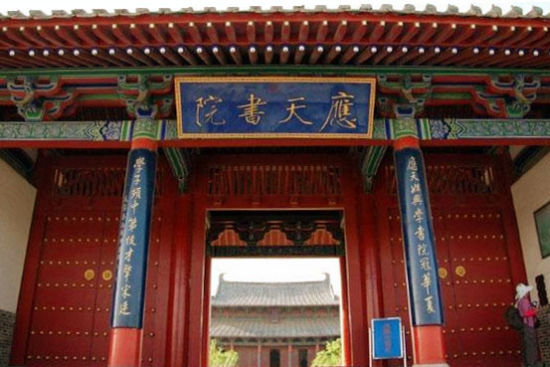
Zhoukou Dachengshuyuan.
Final Thoughts on Your Trip
Visiting Zhoukou Dachengshuyuan is more than just a journey into history; it’s an opportunity to connect with the rich tapestry of Chinese culture and education. Nestled in the heart of Henan Province, this ancient academy serves as a testament to the enduring legacy of Confucian thought and the transformative power of education. As you walk through its impressive halls, you can almost hear the echoes of scholars and students, their voices mingling with the rustling leaves of the ancient trees that surround the grounds.
The tranquil atmosphere invites contemplation and reflection, making it an ideal spot for anyone interested in the philosophical foundations that shaped Chinese society. Whether you’re a history buff, a cultural enthusiast, or simply seeking a peaceful retreat, Zhoukou Dachengshuyuan fulfills all these desires and more.
As you conclude your visit, take a moment to appreciate the beauty of this historical gem and the significance it holds in the narrative of Chinese education. Carry with you not just memories of its stunning architecture and historical significance, but also a deeper understanding of the values it represents. Engage with the local community, explore nearby attractions, and savor the unique flavors of Henan cuisine, ensuring that your journey is not only enriching but also delightfully memorable.
